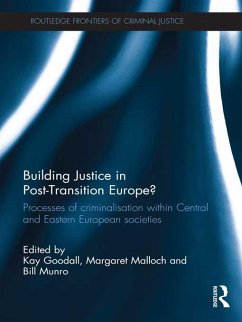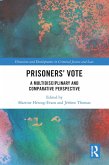Part I of the book sets the scene with a socio-historical overview and a theoretical chapter; both of which contextualise the book within current debates and provide the theoretical direction of the book as a whole. The later chapters set out contrasting perspectives and consist of themed essays on individual legal systems, investigating these through approaches ranging from socio-legal study to political economy. The book aims to refine important directions for the comparative conceptual study of criminal law policy and processes of criminalisation in emerging democratic states. The result is a significant contribution to the understanding of this subject in the fields of criminology, law, philosophy and political science.
The book will appeal to academics, policy-makers and practitioners who are attempting to grapple with the area of "transitions" in the fields of criminology, law, philosophy and political science. As a distinctively interdisciplinary text, it brings together analysis of both the social processes of creating (and abandoning) criminal law and a philosophical reflection. The book provides a comprehensive and critical analysis which points to future directions in criminalisation in the emerging democratic states of Eastern Europe.
Dieser Download kann aus rechtlichen Gründen nur mit Rechnungsadresse in A, B, BG, CY, CZ, D, DK, EW, E, FIN, F, GR, HR, H, IRL, I, LT, L, LR, M, NL, PL, P, R, S, SLO, SK ausgeliefert werden.









